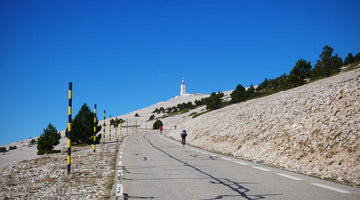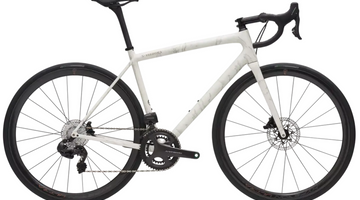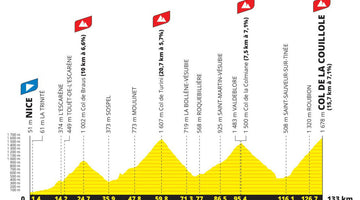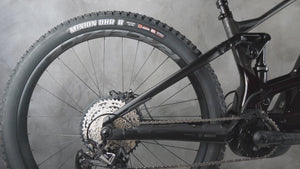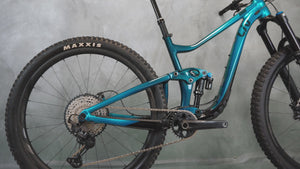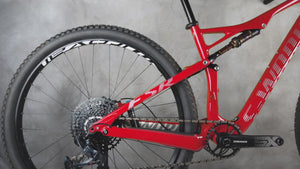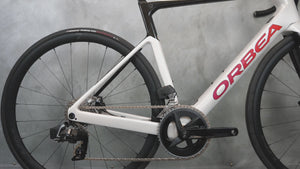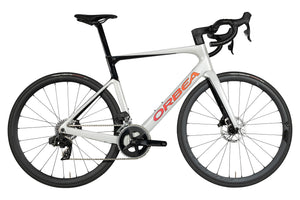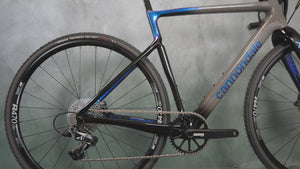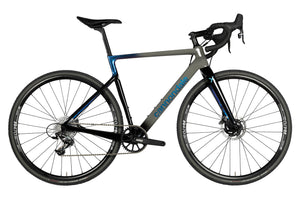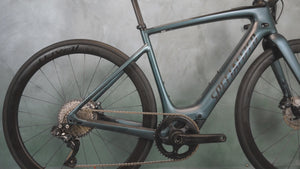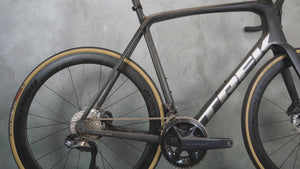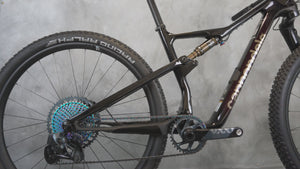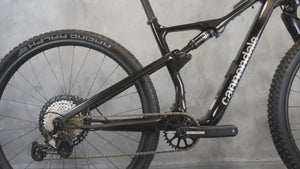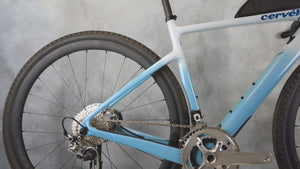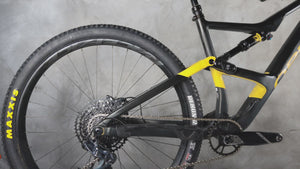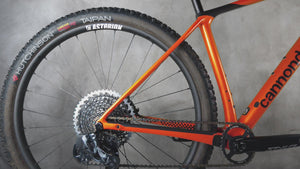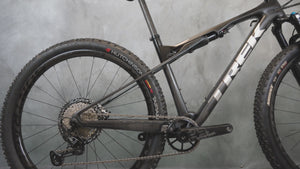Choose its bike size: guide for beginners
In this Article
Posted on August 9, 2021
Do you want to cycle or change yours but you do not know how to choose the one that suits you? The Cyclist House shares with you all the elements to take into account before making your choice!
First of all, you must start by determining the ideal size, the one that will be adapted to your body and the use you intend to make your bike. Although there are significant dimensions, it is essential that you feel comfortable on your bike. If the indicated size is "the good" but that you have a feeling of discomfort, do not buy! For new cyclists, we advise you to perform a postural study in a store to know the ideal dimensions for your body.
What type of measure for what type of bike?
Your size is an important factor, but all those who measure 178cm do not have the same dimensions of the top or bottom of the body, or do not necessarily stand the same on a bike! Many elements can be adjusted on any bike, but the frame remains the skeleton. It is therefore important to start by choosing the framework that corresponds to you. It should be known that as the frames increase in size, widening to adapt to longer members and larger twists. The horizontal tube, the saddle tube, the steering tube and the range are lengthening as you increase the size.
Road bikes
The road bike sizes are generally filled in centimeters. Before, the size of the frame was equal to the length of the saddle tube. For example, a 56cm frame would have a seat tube with a length of 56cm. But, it has changed with the new "compact" cadres. In recent years, depending on the brand, some 56cm bikes can have a 54cm saddle tube, 52cm or even shorter! To avoid confusion, certain brands have decided to offer literate sizes: small (s), medium (m), large (l). At The Cyclist House, we assimilate 48-51cm with size S, 52-55cm with M and 56-58cm with L.

Gravel bikes
Like road bikes, Gravel bikes are usually dimensioned in centimeters. The goal is also the same: feel comfortable! There are many choices in Gravel and their differences are mainly on the wheels: the size, width and pressure of the tires.
Mountain bikes
Unlike your position on a road bike that tends to be rather fixed, on a mountain bike your position is usually not the same very long. Your body moves a lot more. Therefore, the size of a mountain bike is different, it allows you to go up and down the saddle, get off the ribs or climb them. Mountain bikes use sizes sits: S, M, L and sometimes XS and XL.

Warning ! Sizes are not universal. As for clothes, a version of the same size of a bike may seem smaller or larger, from one manufacturer to another. At The Cyclist House, we strongly advise you to look at the table of manufacturer's sizes! The dimensions of the frame may vary depending on the model or brand.
So what factors are important when I choose my bike?
Manufacturers generally recommend a bike size for a range of cyclists. For example, a 54cm or average framework will be adapted to a person measuring between 168cm and 174cm. If you are in the mid-range, it will probably be the best size for you. If you are at one end of a range, you will have the choice between increasing or decreasing the size of your bike. However, there is an overlap between sizes, so a 174cm cyclist could match a larger or smaller size depending on these personal proportions. Do not hesitate to contact our experts if you are between two sizes or if you need our advice!To allow cyclists to better compare bicycle geometries, some manufacturers publish the measurements of their products, called the REACH (distance from the frame) and the stack (elevation of the framework). These measures make it possible to know the distances between the pedals and the handlebars.
When sitting on a bike, the distance from the frame (the REACH) is certainly the first thing you notice. This measure gives the distance in length between the center of the crankcase case and the top of the steering tube. As the name suggests, it is therefore the distance between your body and the handlebars, whether you are sitting or standing.
Similar to the distance from the frame, the stack (elevation of the frame) measures the distance - but this time in height - between the center of the crankcase box and the top of the steering tube.

If your position on the bike is mainly seated (road bikes and gravel), the length of the horizontal tube must absolutely be adapted to the length of your arms and the width of your torso. The length of the horizontal tube is measured horizontally (from the center of the saddle stem in the center of the steering tube of the fork). The REACH and the length of the horizontal tube of a bike will not always seem perfect, but it is possible to adjust them with a more or less long stem.
Finally, the height of the stand-over. This part will certainly you remember memories of your childhood! When you were told that it was enough to place above the horizontal tube and if your feet touched the floor comfortably and that the horizontal tube was not stuck between your legs, so it was the bike. 'You needed! Well, you'll understand it, it's not so simple. The height of the crotch is only part of the elements to take into account. But this is a good start, as long as you adjust some other parameters.
The Cyclist House lists for you the height of the stand-over of all bikes. You can compare it to the measurement of your crotch to make sure the bike that makes you look is not too big.
To measure your crotch with precision, place yourself against a wall with a book or flat object between your legs and use it to measure the distance between your two legs.

Conclusion
If you have a bike whose size is right for you, but you just want to upgrade it, analyze its geometry. This will be an excellent starting point to choose your new bike.
To begin, choose one that has the same reach, the same stack and the same horizontal tube length as yours.
But, if you are currently driving on a bike that does not suit you, or you are a beginner, do not hesitate to go to a cycle shop to carry out a postural study. This will allow you to get your important measures as well as a recommendation of what might be suitable for you.
Also be aware that the size of the frame is only a starting point, then adjust the different elements such as the stack (elevation of the frame), the width and shape of the handlebar, the length of the stem and the withdrawal of the saddle stem. So your driving experience will be much better.
If possible, test several models of bicycles in order to compare the different sensations you feel. There are many important items to find the bike that will suit you perfectly, but when you find it, you will never have to go!















